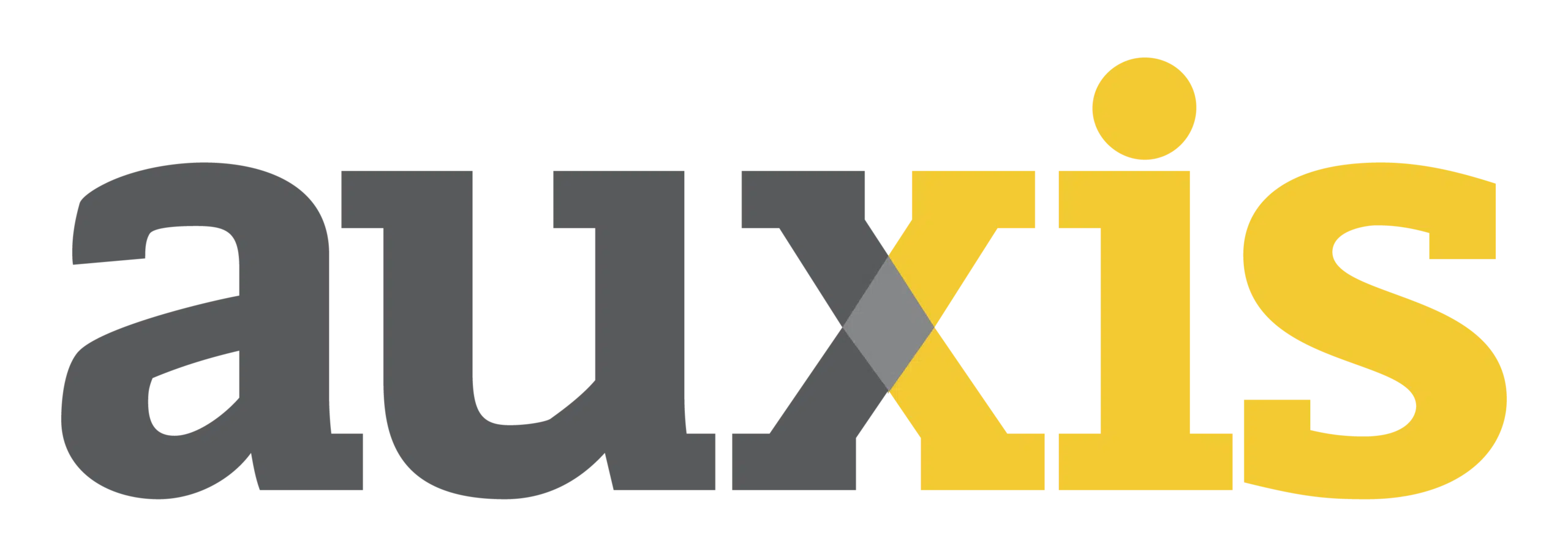In brief:
- Insufficient staff resources are the biggest obstacle to providing quality IT support for educational institutions: Gartner
- Other challenges include rapid deployment of new technologies to support remote learning, use of personal devices, and lack of consolidated IT help portals or ticketing systems.
- Outsourcing help desk to a provider of IT managed services for education presents an easier, more efficient, and cost-effective approach to ensure quality service and IT support for users.
- Nearshoring provides an effective solution for universities to overcome the challenge of finding quality help desk staff from expensive labor markets at home.
University help desks are the first point of contact for students, faculty, and employees to communicate with their academic institutions about IT issues. Yet, these have been traditionally challenged with high volumes of requests, the need for wider coverage hours, complex and legacy IT environments, and tight budgets.
This is due to several reasons. The higher education sector is facing an unprecedented array of challenges and threats: enrollment declines, rising cost of living, and increased student debt. This has meant tighter budgets, and fewer new investments. IT budgets in higher education are expected to increase only 2.1% on average in 2024, the Gartner CIO and Technology Executive Survey found.
Tech talent shortages are also pervasive across universities. Insufficient staff resources are, in fact, the biggest obstacle to providing quality IT services for education, with CIOs even having to cancel IT projects because of workforce challenges, Gartner found.
Education provider CIOs are feeling the pressure from IT talent shortages

As a result, stretched help desks are staffed by student employees with no specialized knowledge or training to help resolve technical issues, and who can provide only limited hours of coverage.
Challenges for providing help desk support for universities
Help desk support in the education industry is complicated by the fact that students and faculty often use their own technology and work away from a physical campus, unlike in a traditional business setting where employees mainly work on standardized devices across the organization. This means that college IT help desks must contend with compatibility issues more often, and troubleshoot issues across various operating systems, device types, and configurations.
The rise of virtual learning programs and online classes – particularly in the aftermath of the pandemic – led colleges to rapidly deploy and integrate new digital technologies to facilitate the online student learning experience and digital collaboration, which also made it necessary to ensure reliable access from off-campus locations. All of this has led to an increase in the volume of support requests coming to the help desk as well as the need for availability beyond standard business hours.
College help desks are also often unconsolidated, with multiple portals for resolving issues with learning management systems, student information systems, online library resources, etc. This often leads to callers being bounced around or asked to call different helplines and explain their issue multiple times, resulting in long first response times, even longer resolution times, and frustration.
Consolidated ticketing systems are also largely absent in such setups, meaning tracking types of calls and resolution times for issues is not possible, and there are no means to gather data for analysis and process improvement.
All the above make help desks inefficient and unable to provide the support students and faculty need for a seamless academic experience.
Benefits of outsourcing university help desks
Outsourcing the college help desk function presents an easier, more efficient, and cost-effective approach to providing quality service and IT support for users. Help desk outsourcing overall has grown at a fast clip in the last few years, as more organizations seek cost-effective and reliable solutions to provide a better employee experience. Below are the top five benefits of outsourcing help desk services for universities.
1. Improved, consistent end-user experience for students and employees
An experienced help desk solutions provider brings specialized expertise in various technologies and support methodologies, providing the right solutions and guidance to end users and much-needed support for compatibility issues.
Help desk experts also provide solutions, establish processes, and implement best practices for handling IT support requests, ensuring consistency in responses and escalation of queries as required through a pre-defined escalation matrix.
Outsourcing further allows colleges to access a larger pool of resources, enabling them to scale their support operations based on demand. This flexibility ensures that adequate resources are available to address spikes in support requests, minimizing wait times and enhancing the overall end-user experience.
2. Lower cost of providing quality support
IT is frequently viewed as a cost center for educational institutes and, given the financial pressures they face today, they are expected to continue seeing tighter IT budgets.
Outsourced help desk services are available to suit a range of budgets. Some of these options include tiered support plans with escalating levels of support, shared services consortiums that allow universities to share outsourcing costs, and flexible pricing models which allow clients to pay only for the support services they use. This eliminates the need for large upfront investments and allows institutions to scale their support costs based on demand.
Providers based out of top nearshoring destinations such as Costa Rica and Colombia provide quality tech talent with significant labor arbitrage compared to the U.S. Both countries possess deep, highly educated IT talent pools, with government support and business investments ensuring steady talent pipelines. LATAM resources also consider help desk to be a prestigious career, mitigating high turnover rates that plague U.S. operations.
Ranked among the top three countries in Latin America on the WEF-endorsed INSEAD 2023 Global Talent Competitiveness Index, and #1 for attracting talent, Costa Rica combines one of the region’s highest English proficiencies with the most mature shared services market in LATAM. Colombia ranks #1 for skilled talent availability in LATAM on IMD’s 2023 World Talent Report. It is also the most financially attractive of the top nearshore markets, according to Kearney’s 2023 Global Services Location Index.
The number of foreign companies hiring from Latin America has increased by 156%, the most for any geography, a report by global hiring firm Deel found. Nearshoring provides an effective solution for universities to overcome the challenge of finding and hiring quality help desk staff from expensive labor markets at home.
2024 Auxis Help Desk Report: A Step-by-Step Guide to Successfully Outsourcing your Service Desk

3. Increased coverage hours
The rise of online classes and distance and virtual learning programs necessitated the availability of a 24×7 help desk to ensure students can seamlessly access online resources or use learning platforms. Universities also often have students, faculty, and staff located in different time zones around the world, and round-the-clock help desk support ensures that timely assistance is available to everyone.
Many administrative functions such as admissions, financial aid, and student services may also operate outside standard business hours, and timely technical support is essential to avoid delays in essential administrative processes.
An outsourced help desk services provider can ensure availability of resources to provide round-the-clock support. Working with nearshore-based providers can be particularly advantageous, given their time zone proximity and English language and multilingual proficiency, as well as cultural compatibility. The less-saturated labor markets in nearshore markets compared to locations like India and the Philippines ensure high-level talent and low turnover for overnight shifts as well.
Quality help desk providers also ensure availability of self-service resources such as knowledge bases, FAQs, automation, and troubleshooting guides that users can access at any time. These serve as Level 0 support, enabling users to resolve common issues on their own, reducing the need for immediate assistance from help desk staff.
4. Access to best-in-class automation and reporting tools
Today, AI and automation are critical for providing timely and quality help desk support as well as overcoming the IT talent gap by ensuring consistent, 24×7 support. Quality outsourcing providers provide instant access to the latest technology without a big capital outlay, offering the expertise to tailor automation and reporting tools to the specific needs and requirements of educational institutions.
AI algorithms can provide effective triaging by analyzing and categorizing incoming support requests, routing them to the appropriate support staff or resources, and ensuring urgent issues receive prompt attention.
Automation tools such as chatbots, automated ticketing systems, and remote monitoring software help streamline support processes and handle routine tasks without human intervention. Automation can be created to keep knowledge base articles updated; analyze incoming support tickets, chat transcripts, or documentation to identify common questions or issues; and suggest relevant changes or updates to knowledge base articles.
Help desk providers can also customize workflows, dashboards, and reports to align with the university’s requirements, ensuring that reporting tools provide maximum value and insights, and can be scaled up as required.
5. Simplified talent management
Outsourcing relieves university management from having to find suitable talent to staff the IT help desk – a task made increasingly difficult due to the persistent IT talent shortage. Outsourcing providers are responsible for recruiting, hiring, and onboarding help desk staff as well as investing in training and development programs to ensure they are equipped with the necessary skills and knowledge to provide quality support.
Quality providers also create strong retention programs to minimize turnover; for instance, offering better career paths than captive shared services centers.
Outsourced help desk providers also maintain a pool of trained professionals to hedge against staff turnover or scale up operations to meet client requirements, helping maintain service quality and continuity. They are also responsible for monitoring the performance of help desk staff and implementing performance improvement initiatives as needed. They establish metrics and KPIs to measure service quality and are also responsible for building and maintaining knowledge bases and documented Standard Operating Procedures (SOPs) that can be followed by any agent.
Given the multiple pressures universities face today, maintaining efficient IT managed services can be a competitive advantage – supporting the quality university experience that is essential to attracting and retaining students and enhancing student engagement. Partnering with a trusted IT managed services provider can help universities gain efficient, effective, and consistent IT support while focusing their own resources on their core mission of providing quality education.
Want to learn more about how help desk services and nearshore outsourcing can support your business needs? Schedule a consultation with our help desk leaders today! Or visit our resource center to learn more help desk trends, strategies, and success stories.
